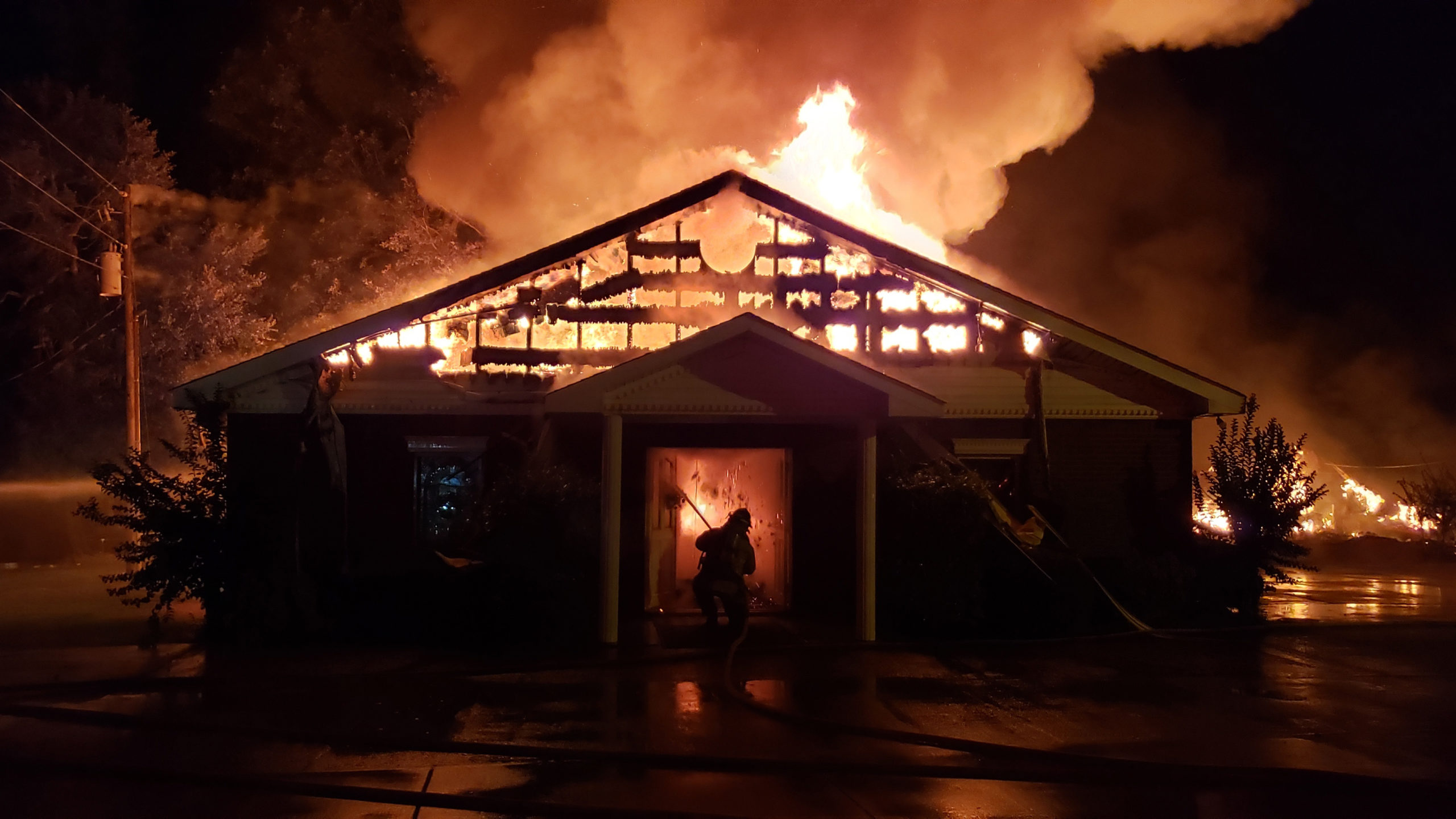As pastor D.J. Smith watched Hurricane Baptist Church in Gilbertown become engulfed in flames, many questions raced through his mind.
On July 15, lightning struck the rural Choctaw County church’s worship facility, sparking a fire that completely destroyed the building.
“At the time it was burning, I was thinking, ‘Where are we going to be Sunday? What are we going to do? How are we going to build back?’” recalled Smith, who had only been pastor since January.
Following a disaster, many ministry leaders face those same questions. Some Sources say that they are left wondering whether or not their facility is adequately covered by insurance and whether they will be able to afford repairs — or even a new facility if necessary.
Fortunately for Smith and Hurricane Baptist, which averages about 55 in attendance on Sunday, the church’s deacons had reviewed their insurance policy with the help of the lawyers for insurance claims last year and made adjustments that helped cover the damage.
‘Extremely blessed’
“We were extremely blessed, and I want to commend my church because they took the opportunity to make sure that we had enough coverage,” said Smith, who said the demolition of the building has been completed and they are making plans to rebuild while worshipping rent-free in a nearby church building.
“That is a huge blessing for our church. … The Lord has definitely provided,” he said.
Unfortunately, many churches learn too late they are not adequately covered by insurance, said Lee Wright, coordinator of church compensation services for the Alabama Baptist State Board of Missions. Every church should review their policies and make needed changes at least every three years — and possibly more than that, he said.
“A lot of churches haven’t looked at [their policies] in years and years,” Wright said. “Real estate values have tremendously increased and building costs have tremendously increased, and the church may be underinsured.”
Often a higher deductible is in order, he noted, recalling one church that lost its policy because they filed too many claims over relatively small issues they probably could have handled themselves.
“That church would have been better off to raise their deductible and pay for these $700 events,” Wright said.
For most churches, the priority should be on “big events” that might happen, such as losing an entire roof or someone suffering an injury on church property that required surgery or long-term recovery.
“It’s just a really important area of church life, and I know when budgets are tight, that’s one area where they want to save money … but they need to do that in a wise way.”
Wright recommended church leaders also consider working with insurance agencies and related organizations that have experience helping ministries deal with these and other critical issues, including religious liberty, church security and sexual abuse.
Options for churches
Wright recommended GuideStone Financial Resources, Brotherhood Mutual Insurance and MinistrySafe as options for churches because of their familiarity with these and other related issues.
For instance, MinistrySafe provides training and offers resources and tools to help protect churches from sexual abuse issues.
“The statistics are just jaw-dropping,” said Dave Hargrave, senior account manager with GuideStone’s property and casualty team for Alabama, who represented Brotherhood Mutual for six years and also worked alongside MinistrySafe.
“Churches that do not have the proper screening in place are actually a target for sexual predators,” Hargrave said. “It’s extremely important … to be proactive in protecting the church through proper policies, and training and screening of volunteers and employees who work with children.”
Proper polices in place
Church security also is a critical issue churches should evaluate to ensure they have proper policies in place and everyone involved with the security team is adequately covered, Hargrave said.
Religious liberty is another issue. Many secular companies may not be as equipped to help a ministry deal with having their tax-exempt status challenged over a same-sex marriage-related dispute or other hot-button issue, for example.
“There is a considerable difference in working with a secular insurance company and one that’s focused exclusively on ministries,” Hargrave said. “There are liability coverages that are afforded to ministry specific policies that are not available on the secular side.
“Having that ministry connection is important,” he added. “If you need heart surgery or brain surgery and you go to a general practitioner, there is only so much he can do. You need to go to a specialist.
“Religious freedom protection is an increasingly needed coverage as our society continues to shift away from biblical foundational beliefs.”





Share with others: